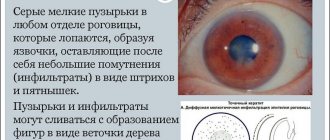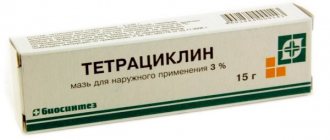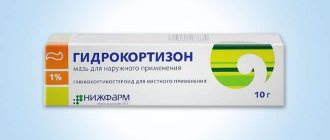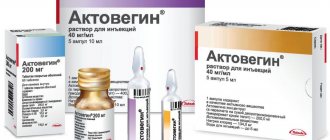Cavinton - injections that help combat pathological changes associated with disruptions in cerebral blood circulation. Having a positive effect on blood vessels, it improves the structure of the brain and metabolism in it.
The drug is available without a prescription. However, for this reason you should not prescribe it to yourself. Since the severity of the structures affected by it, the active substances and the presence of contraindications require medical supervision over the practical use and administration of the drug.
Composition and release form
Cavinton is produced by a pharmaceutical company in tablet and ampoule form. The tablets are intended for oral administration, and the solution (in ampoules) is for intramuscular administration.
The main active ingredient is vinpocetine, which is contained in a dosage of 5 mg in Cavinton tablets, and in a volume of 10 mg in solution.
Vinpocetine, as an active ingredient, promotes:
- acceleration of blood circulation;
- dilation of blood vessels in the brain;
- increasing the supply of oxygen to brain cells;
- normalization of glucose balance.
It is vinpocetine that affects blood pressure levels. Its properties help reduce blood pulsation, and, as a result, Cavinton lowers blood pressure.
Description
The active ingredient of Cavinton is vinpocetine. It is a plant alkaloid obtained from a flower called periwinkle. The medicinal properties of this plant have long been known in folk medicine.
Vinpocetine belongs to the class of nootropic drugs, that is, drugs that affect brain function. It has a cerebrovasodilating and cerebroprotective effect. The main effects of vinpocetine are improvement of metabolism and blood circulation in nerve tissues, antioxidant effect. The drug also improves blood properties.
Among the metabolic effects demonstrated by the drug, the following should be noted:
- reducing damage caused by amino acids,
- inhibition of the action of sodium and calcium channels,
- stimulation of the neuroprotective effect of chlorpromazine,
- improving the consumption and metabolism of glucose and oxygen,
- stimulation of serotonin and norepinephrine metabolism,
- increasing the concentration of the energy molecule ATP in brain tissue,
- increasing the resistance of nerve cells to hypoxia.
Effects of the drug associated with improved blood circulation:
- decreased cerebral vascular resistance,
- reducing the tendency of platelets to aggregate,
- reduction of pathological blood viscosity,
- increasing the deformability of red blood cells,
- blocking the absorption of adenosine by red blood cells,
- increased oxygen delivery by red blood cells,
- optimization of blood circulation in small capillaries (microcirculation).
At the same time, the drug does not have a significant effect on systemic circulation and does not change blood pressure or heart rate.
An important feature of the drug is that it acts most actively in the part of the brain affected by ischemic pathology.
The drug easily penetrates the blood-brain barrier, which explains its nootropic effect. It is absorbed in the intestines within an hour. Two-fifths of the drug is excreted through the intestines, and three-fifths through the kidneys.
Indications
The cerebral circulation stimulator, Cavinton, has a relaxing effect by dilating the walls of blood vessels. As a result of use, metabolic processes (norepinephrine and serotonin) in brain tissues also improve, the blood becomes more fluid, and erythrocyte plasticity increases.
These properties are useful in the treatment of neurological and mental diseases characterized by impaired blood flow in the brain.
Indications for the use of Cavinton are diseases in which the following are observed:
- memory disorders;
- speech defects;
- migraine;
- stable increase in blood pressure;
- increased vascular tone;
- constant dizziness.
Such pathological conditions often occur after a stroke, during menopause, with traumatic brain injuries and with the development of atherosclerotic diseases.
The drug can also be used in ophthalmology:
- for atherosclerotic disorders in the retina or blood vessels of the eye;
- with degenerative processes of the macula;
- for relapses of glaucoma (in case of blockage of blood vessels).
Cavinton is not used for high blood pressure with the express purpose of lowering blood pressure. The effect of the drug is strong, so it is used only as prescribed by the attending physician.
Contraindications
The drug Cavinton has a number of contraindications. Before starting therapy, the doctor must ensure that there are no risks to the patient's health. When taking the medication yourself, be sure to familiarize yourself with the contraindications.
The drug is not recommended for use:
- with a complex form of arrhythmia;
- for ischemic heart diseases;
- during pregnancy.
It is not advisable to take Cavinton if you have low blood pressure and unstable blood pressure. The medicine is also not prescribed together with heparin when administered by injection.
Contraindications
This medicine should not be taken by the following categories of patients:
- pregnant women (as placental blood flow may increase, which leads to an increased risk of miscarriage);
- nursing mothers (since the active substance passes into breast milk, and there is no data on the safety of its use in infants);
- persons with enzyme deficiency, in which the breakdown of galactose, lactose or the absorption of glucose and galactose is impaired;
- children under 18 years of age (this is due to insufficient clinical studies);
- persons with individual sensitivity to the components of the drug;
- patients with phenylketonuria (for the drug Cavinton Comfort);
- for the injection form: patients in the acute period of hemorrhagic stroke, with severe coronary heart disease and arrhythmia, with fructose intolerance.
It is prescribed with caution for congenital or acquired heart pathology, when the duration of the QT interval on the ECG increases or when taking medications that lead to this phenomenon.
Mode of application
Therapeutic treatment with Cavinton is prescribed exclusively by a doctor. You should not carry out therapy on your own, since the instructions for use indicate a general dosage regimen for the drug.
Take one or two tablets three times a day. In the absence of a serious condition, they are limited to one tablet. The course of treatment is determined individually. After two weeks of use, monitoring is necessary. If the patient shows positive dynamics, the dosage is reduced, and the drug can be extended for three to five weeks in order to maintain the achieved results.
Injections can be administered only after diluting the drug in an isotonic sodium chloride solution in a ratio of 10 mg/0.5 l. During the first three days, the dose is 20 mg/500 ml. Then the dosage is determined individually. The course of injections is two weeks.
In childhood, the administration of Cavinton solution is prescribed for convulsive syndrome with a dose of 10 mg per 1 kg of body weight. Dilute the drug in a 5% glucose solution. Course – 21 days.
Use during pregnancy and breastfeeding
Treatment with Cavinton during pregnancy is not carried out, since the drug penetrates into the blood and can also cause uterine bleeding, which becomes a threat of self-abortion. Cavinton for blood pressure in pregnant women can only be used in emergency cases, when the life of the woman and her fetus depends on the condition of the woman.
The drug is also not recommended during breastfeeding due to its ability to pass into breast milk.
Dosage regimen and dosage of the drug
The average course of taking the drug in tablet form is at least 60 days (usually longer). For adults, the prescribed dosage is 2 tablets of 5 mg three times a day. If therapeutic therapy is supportive in nature, then the dosage is 1 tablet of 5 mg three times a day. The first improvements are noticeable after 14 days of treatment.
Cavinton may be used intravenously only if a dropper is used; subcutaneous administration of the medicine is strictly prohibited. Indications for intravenous use:
- ischemic disturbance of cerebral blood flow in the acute stage of development;
- cerebral hemorrhage.
The drug is administered intravenously in no more than 2 ampoules (20 mg) at a time, dissolved in 1 liter of sodium chloride. If repeated courses are necessary, the doctor prescribes intravenous administration three times a day after meals. Next, the treatment regimen includes switching to the tablet form of the drug. At the end of treatment, the dosage is gradually reduced.
Adverse reactions and overdose
According to reviews left by patients who were treated with Cavinton, the drug causes an adverse reaction mainly when there are contraindications or a violation of the therapy regimen.
If a side effect occurs, the patient exhibits signs of the drug's effect:
- tachycardia or hypotension;
- anemia, red blood cell adhesions, leukopenia or thrombocytopenia;
- decreased appetite;
- overexcitability or depression;
- decrease in pressure;
- euphoria or insomnia;
- migraines, seizures or stupor;
- conjunctivitis;
- cardiac disorders (including heart attack);
- pressure surges;
- noise in ears;
- disruption of the gastrointestinal tract;
- thrombophlebitis;
- dermatitis or allergic skin reaction.
In case of overdose (exceeding the dose of 400 mg), the same symptoms are observed, but more pronounced.
special instructions
When undergoing a course of treatment with Cavinton, you should pay attention to special instructions:
- at risk of a heart attack or in a post-infarction state, it is necessary to monitor the functionality of the heart by periodically performing an electrocardiogram;
- when diagnosing increased intracerebral pressure, therapy is permissible only after assessing the possible risks;
- in case of glucose or lactose intolerance, the drug is replaced with a suitable analogue;
- do not use the product in childhood without a doctor’s instructions and there are increased risks;
- the medicine is incompatible with alcohol;
- It is not recommended to engage in activities that require special care during treatment;
- It is not advisable to drive before completing the course of therapy.
Do not neglect special instructions, since violation of the conditions for using Cavinton can lead to an adverse reaction and worsening the patient’s condition.
Interaction with other drugs
Clinical studies of Cavinton's relationship were conducted with A-methyldopa and B-blockers. In the first case, hypotension was noted, so the use of this combination requires constant monitoring of the patient's condition. As for the second case, no interaction was detected. In both cases, it is worth exercising extra care, especially if the drugs have an effect on the human central nervous system.
Analogs
"Cavinton" has analogues - drugs with similar composition and pharmacological properties.
The closest analogues include tablets:
- "Quanil";
- "Neurovin";
- "Dendrix"
- "Oxopotin";
- "Vicebrol."
Analogues in ampoules:
- "Axotilin";
- "Kemodin";
- "Vinpocetine";
- "Neurodar";
- "Diphosphocin".
Replacing the drug with an analogue is possible as prescribed by the treating specialist.
Price for Cavinton and its analogues
The average price for a package of Cavinton in the form of tablets with a dosage of 5 mg (50 pieces) is 215 rubles, 10 mg (30 pieces) is 320 rubles, Cavinton in ampoules is from 230 rubles. For comparison, the price of analogues:
- Vipnocetin in tablets - from 35 rubles, concentrated powder - 45 rubles.
- Korsavin - from 60 rub.
- Cinnarizine - from 20 rubles.
- Actovegin - from 125 rubles.
- Mexidol in tablets - 200 rubles, solution for injection - 400 rubles.
Before purchasing or taking any of these medications, you should consult your doctor.
Reviews
You can find reviews about Cavinton on the Internet, as well as from your doctor. Almost all reviews are positive, which confirms the effectiveness of the drug.
Maksim:
“After the traumatic brain injury, severe headaches began and memory impairment appeared. After diagnosis, problems with blood circulation in the brain were revealed. The doctor prescribed a course of therapy with Cavinton. After two months, I forgot about the problems that bothered me. The pressure returned to normal, and the cells began to be saturated with necessary substances.”
Natalia:
“After a stroke, my mother was prescribed Cavinton. Initially they gave her IVs, but after two weeks she started taking pills. After 10 days, a control (ECG) was done. The mother’s condition and diagnostic results proved that the drug effectively combats cerebral circulation disorders.”
Instructions for use of Cavinton
In order for the drug to be as effective as possible, it is necessary to adhere to the dosage prescribed to the patient by the attending physician. The tablets should be taken orally without crushing or chewing them. It is recommended to drink them with a small amount of warm water without gases. You should take the tablets strictly after a heavy meal.
The dosage of Cavinton should be prescribed only by the attending physician, based on the current condition of the patient and his existing pathologies. The minimum daily dose is 15 mg of the active substance, that is, 3 tablets. As a rule, it is prescribed to elderly patients, as well as people suffering from severe liver and kidney diseases. If this dosage does not show its effectiveness, then it can be gradually increased. In this case, the maximum daily dose is no more than 30 mg of the active substance, that is, 6 tablets per day. Exceeding it can lead to an overdose and a general deterioration in health.
It is worth noting that the effect of taking the drug does not appear immediately. Improvement in well-being can be noticed about a week after the start of treatment. As a rule, its duration is from one to three months. The duration of the course should also be prescribed by the attending physician.









